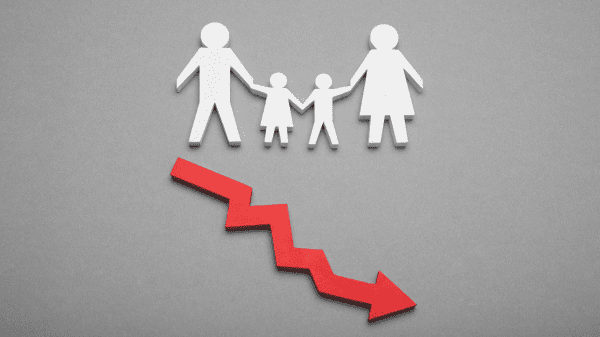I’m always fascinated when I come across one news story that dovetails with another from a different source.
Over the weekend, my weekly copy of The Economist arrived in the mail. Its cover story: “The baby-bust economy: how declining birth rates will change the world.”

The United States, like every other developed nation, is seeing a radical drop in birth rates. Ours is not as sharp as South Korea’s (projected to have 50 percent of its 2000 population in 2050), but at 1.784 percent, it’s below the replacement rate.
Since it takes two people to make a baby, the replacement rate is 2.1 percent (to allow for deaths in infancy and childhood).
This article reminded me of an item I’d seen in Mexico News Daily, which outlined the same problem in our neighbor to the south. Mexico’s fertility rate is higher than ours, at 2.027, but it’s still below replacement level.
In 2020, the nation’s population, then at 124 million, began to shrink.
Citing the World Bank’s 2023 World Development report, entitled “Migrants, Refugees, and Societies,” Mexico News Daily said—to my astonishment—”Mexico’s population is no longer growing and may soon need more foreign workers.”
In May, Mexican president Andrés Manuel López Obrador (popularly known as AMLO) announced a program issuing temporary work visas to immigrants from Central America, saying that the government needs skilled workers to complete major infrastructure projects.
The Economist forecasts the U.S. population in midcentury at some 140 percent of 2000 levels, so we are not expected to see a drop. But with the birth rate at current and projected levels, that additional population is going to come from abroad, bringing up that explosive word immigration.
This leads me to a troubling conclusion. Immigration woes—notoriously those at the Mexican border—are routinely blamed on failures of enforcement, but it seems much more likely that the real deficiency is an immigration policy that has very little bearing on actual needs, current and future.
Consequently, immigration policy needs to be rethought along much deeper and extensive levels than is currently being done or even suggested. The labor shortage is a central concern to the produce industry, of course, but it affects many others, and this situation is likely to continue as the American population sees a steep increase in old people as baby boomers crawl toward mortality.



